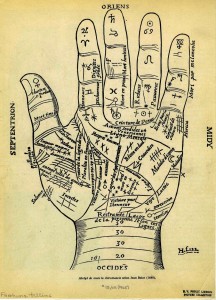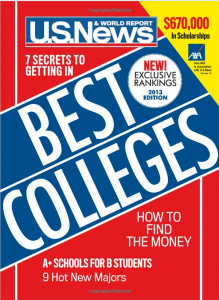Akim - Google Blog Search |
- The Crisis in American Colleges, Part I - The Public Professor
- Scorpio: Of Course You Are - The Public Professor
- Stanley Lewis, “North-Gate” (2002) - The Public Professor
| The Crisis in American Colleges, Part I - The Public Professor Posted: 11 Feb 2014 07:00 AM PST My essay on the problems in American higher education first appeared at 3 Quarks Daily as a single article. I am re-printing it here in two parts. Part I: Identifying the Problems American colleges have undergone substantial changes during the last three decades.
There are many explanations for these wide ranging changes, as well as varying degrees of change among America's hundreds of colleges. For example, private colleges are generally less dependent on public largess, though many of them do in fact receive public subsidies from federal, state, and even local governments. Meanwhile, the public colleges that rely more heavily on public spending face different circumstances depending on which states they're in; each has different budgets and policies for supporting higher education. In some states there has been This has led schools not only to raise tuition rates, but to also seek substantial revenue from fund raising, which runs the gamut from alumni contributions, to naming rights to campus buildings, to exclusive contracts with junk food venders. For example, many schools have cut deals with either Pepsi Co. or Coca Cola, Inc. granting one or the other exclusive rights to sell beverages on their campus. Good luck finding something healthy to drink. Contingent faculty receive lower pay, fewer benefits (if any), and have no job security, generally working on short contracts. Some are only 10 months long. Most are 4. For schools that run on a trimester schedule, adjunct contracts may be only 3 months long. Indeed, labor conditions are so insecure that many schools will not even admit to firing contingent faculty except for the rare instances that take place mid-semester; when adjuncts, lecturers, and the like are effectively fired, colleges often insist otherwise, claiming that the these temp workers are simply not having their expired contract renewed. When it comes to justifying the degraded working conditions of contingent faculty, college administrations have a choice. On the one hand, they could say it is because contingent faculty are inferior teachers. They could disingenuously claim that this is a class of worker not good enough at their craft to earn a TTT position. Of course colleges do not actually say this, for many reasons, not the least of which is that it's not true. But beyond that, while such a claim would rationalize labor exploitation, at least to some people, it would greatly upset parents and students who are paying the ever higher rates of tuition, the faculty themselves, and institutions like U.S. News and World Report that issue the college rankings many administrators are so keen on. The other "justification" for exploiting workers is more honest: that colleges are simply taking advantage of a labor glut and engaging in crass exploitation to produce a two-tiered system in which the lower tier of workers gets less compensation and no job security despite being, on the whole, every bit as good at their job as the higher tier of workers. The problem with admitting to this is that, aside from being a very distasteful thing to say publicly, colleges don't want to draw attention to the fact they are actually complicit in creating the labor glut that they themselves exploit. All colleges are guilty, for they have eliminated positions in the higher tier and created more and more jobs in the lower Predictably, American colleges simply try to avoid publicly talking about their two-tiered labor system. This situation has contributed to an increasingly hostile climate between faculty and administration. Many TTT faculty blame college administrations for the two-tiered labor system, the loss of TTT jobs, and the exploitation of an expanding lower tier of labor. A common accusation is that college administrations have grown bloated at the expense of faculty. Meanwhile, administrators often play into stereotypes about professors by accusing them of being out of touch with "the real world," in this case the realities of modern college budgets. For example, they point out that some administrative growth is the result of federal regulations, not discretionary spending. New federal regulations demand increased administrative expenditures to ensure compliance. Furthermore, some administrative costs, like IT support, didn't exist thirty years ago. And for their part, contingent faculty are often embittered by the entire situation, quick to blame all sides, and not unreasonably so. fThe reality is that many phases of society, in and out of academia, are to blame for the current problems in higher education. Many state governments, alarmed at higher education's share of discretionary spending, have slashed funding, thereby forcing schools to make tough choices that are almost guaranteed to produce negative results. Many administrations have gone on to make dubious choices about resource allocations, in part because of budget cuts, but also in part of misplaced priorities, such as a growing corporate culture that stubbornly insists non-profit schools should be run like for-profit businesses, and students should be treated like "customers." Many TTT professors are either safely ensconced in their tenured positions or working towards such, while doing nothing to challenge the two tiered labor system they profit from. Many parents and students, as consumers, have rolled over. Convinced of the supposed necessity of a college education, some have let themselves be bullied into putting up with spiraling costs and a problematic teaching system. Others have taken a lackadaisical approach to examining a product they will spend tens, if not hundreds of thousands of dollars on, and are largely unaware of the situation. Indeed, so long as parents and students put up with all of this, nothing is likely to change anytime soon. And even contingent faculty themselves must, at a certain point, take a modicum of responsibility for their situation. They are clearly the most victimized class in this scenario, frequently having accumulated five- o Again, not to blame the victim. Excepting the small fraction of adjuncts, such as retirees, who really do want occasional part time work, the vast majority of contingent faculty have every reason to feel angry and aggrieved; they are in fact being grossly exploited. But the complexities of their career choices at various stages are one part of a large, complicated equation. In Part II, I will attempt to crack open that equation by going inside the numbers. Filed under: Current Events, Education |
| Scorpio: Of Course You Are - The Public Professor Posted: 15 Jan 2014 06:51 AM PST  It was 1996. I was 28. I had recently moved to Nebraska to attend graduate school. I was at a party. I didn't know a lot of people. Maybe I didn't know anyone. One woman was talking about palm reading. Apparently she read palms. It was 1996. I was 28. I had recently moved to Nebraska to attend graduate school. I was at a party. I didn't know a lot of people. Maybe I didn't know anyone. One woman was talking about palm reading. Apparently she read palms. Laughable, of course. But I didn't say anything, just drank my beer. There was this other guy though, in his early twenties. He said some things. None of them nice. How stupid. Don't be ridiculous. Duh. Sure, yeah, I agreed with him. It is stupid. But do you have to be such a dick about it? This woman seems like a perfectly nice person, maybe even nicer than most. What's the point of insulting and belittling her? I guess it was one of those moments when I recognized a younger version of myself in someone else and I didn't like what I saw. It's good to have those moments, even if they make you uncomfortable. Especially if they make you uncomfortable. I finally spoke up. "Why don't you read my palm," I said, looking to break the tension and succeeding. I offered her my upturned hand. She smiled and took it. She held my hand and said nice things about me. Who wouldn't like that? Who wouldn't, when feeling a little sad or lonely, pay a few bucks for that? * I'm a Scorpio. I've always thought that's a pretty cool sign. A lot better than my Chinese sign, the Sheep, which I try to butch up by telling people I'm a Ram. I dunno. At least I'm not a Rat. But there's no doubting, at least not in my mind, that the Scorpio is the coolest sign in the Western zodiac. You might make an argument for Leo, or maybe Taurus, but c'mon. Scorpio, man. It's got a black exoskeleton and a tail with a stinger. That's pretty hard to beat. That's pretty bad ass. The only reason I know I'm a Ram in the Chinese zodiac is because those Chinese restaurant paper place mats told me so. The only reason I know I'm a Scorpio is because my mother told me so. The night I was born, her friend Gail drew up my chart for the exact date and time of my birth. The rising sign, house of this, some moon or another. I don't know. My mom says she's still got the charts somewhere, she's not sure where. I could probably just look it up online, but I don't actually care. All I know is I'm a Scorpio, and scorpions are pretty fuckin' cool. * I remember when I was a little kid, my mom had a deck of tarot cards. It was the 1970s, not terribly uncommon I suppose. That and Ouija boards. Once in a while she would lay them out on the table, like a game of solitaire with picture cards. I didn't know what it meant. I didn't know how to play solitaire either. I'd stare at the pictures. The skeleton, the one with the scythe. Wow. And that witchy woman. Is that what The Eagles were singing about? My parents had the Best Of, vol. 1. Was there a connection? I didn't know what any of the cards meant or why they were arranged like that or what order they were turned over in. I knew nothing. They were impenetrable. But the pictures made impressions. It seemed like they were supposed to. * Since the passing of childhood, my only relationship to the zodiac has been a joking one. After all, it doesn't actually mean anything, right? When I first discovered The Onion in the late 1990s, my favorite feature was their horoscope section, run by the mythical character Lloyd Schumer, retired machinist and A.A.P.B.-certified astrologer. The small black and white photo next the by-line featured a face that was pock-marked and sagging yet robust, maybe late 60s. Looked like the kinda guy who'd done well for himself with the G.I. Bill after the war. The horoscopes were gems of absurdist humor, many of them using bizarre yet sterile violence to reveal an unfathomably brutal and uncaring universe. Fate is a fickle creature, Lloyd's horoscopes taught us. And she'll stab you in the eye an with a spork when you least expect it. Or maybe she'll just lecture you.
I also remember a night in the early 1990s. The New York Post, that venerable tome of wisdom and veracity, ran an article about some astronomer reconfiguring astrology. My friend read the article aloud to us while we were drinking at The International Bar on 1st Avenue. Rose the bartender joined in. It was still early. The astronomer noted that the position of the 12 major constellations had shifted in relation to Earth during the more than 2,000 years since the zodiac was first observed. That means their dates on the solar calendar had also changed. He lengthened some and shortened others. Oh, and there were actually 13 major constellations, he said, not a dozen. But they would have had trouble observing the 13th back then without telescopes. He called that one Ophiuchus and stuck it at the end of the calendar. My friend, the one reading the article to us, was born in mid-December. A Sagittarius. Except now, according The Post, he was an Ophiuchus. He was very pleased with himself. I was still a Scorpio. Fuckin' A right. * I like sex. I always have. What's not to like? That's how I look at it. It's pretty much the best thing going. Certainly the best free thing out there. Hands down the best free thing that doesn't harm you and might actually make you better. What does that have to do with being a Scorpio? Nothing, of course. Except that in the past two days, two different friends have told me it has everything to do with it. A couple of days ago, a female friend told me that Scorpios are notoriously horny. She mentioned this after I joked about a unicorn having an orgasm so intense that it looked like it was having a seizure. Of course I say You gotta be careful when you talk about people's parents. Then just today, a male friend and I were having lunch at a local Egyptian restaurant that has killer pita. Seriously. This pita is to fucking die for. He had the platter. I had the samosas and the seafood soup. That was a mistake. They're Egyptian, not Indian. But I knew that going in. The samosas were frozen and disturbingly uniform. Coulda been worse. The soup was eh. Me and my friend were eating and talking about horndog shit, cause it turns out we're both total horndogs. Just nasty ass shit that we can't get enough of. Then it comes out. He's a Scorpio too. "Of course you are," he said. * It was 1984. I was 16. I was at Broadway Records in the Bronx. It was, appropriately enough, on Broadway, under the el, north of W. 231st St. It was an exciting time in my musical development. Sixteen years old often is. I was listening to everything from Jimi Hendrix to Beethoven to Emerson, Lake, and Palmer to Lynyrd Skynyrd. I don't know if it was good time, but it was certainly an exciting one. I wasn't into Punk yet. I just wasn't that angry at 16. And all the Punks downtown seemed like attention hungry brats. When I watched Repo Man and Emilio Estevez's character chides his dying friend for making excuses for his miscreant ways by saying "Bullshit. You're a white suburban punk just like me," I nodded. Yup. Spoiled. They all seemed spoiled. Punk came later. But in the mid-1980s I did have a minor flirtation with Heavy Metal. Not much, just a little. I bought Van Halen II, mostly because it had such a bitchin' cover, and I ended up liking it. The vocal harmonies and sense of humor helped. I also bought a cassette of Def Leopard's Pyromania. It seemed like the logical thing to do since I'd recently won a t-shirt of the album cover at the carnival that came through the abandoned lot in front of my high school every year. I think I'd popped a balloon with a dart or something. It was a ratty old thing one of the carnies had probably owned. Fell apart after the first wash. I thought the album was uneven. And then there was that Scorpions record. Love At First Sting. Like VHII, it was about the album cover. But it wasn't some cool design with cool graphics and cool colors. It was the sex. As I flipped through the albums, I stopped when I saw that black and white photo taking up the entire cover. They were embracing passionately. He was gnawing on her arched neck. Her head was tilted back with pleasure. His hand was discreetly tattooing a scorpion on her exposed thigh. You could kinda see the side of her tit. Is that her tit? Holy shit. I can kinda see her tit. I bought the album. Turns out the cover was designed by Helmut Newton.
Sometimes, not very often, but once in a rare while, I'll hum the song to myself and change the words to "Here I am/fucked you like a hurricane." "Of course you do," my friend said, she of the pervy dad. "You're a Scorpio." * I like sex. I don't need a reason why. I just do. A lot. And I like it anyway you wanna do it. Even that nasty stuff. Especially that nasty stuff. You want me to talk dirty? C'mon baby, talk dirty like we like. But most of all, I like it when you hold my hand and say nice things about me. This article originally appeared at 3 Quarks Daily. Filed under: Culture |
| Stanley Lewis, “North-Gate” (2002) - The Public Professor Posted: 03 Feb 2014 05:00 AM PST [unable to retrieve full-text content]Stanley Lewis, "North-Gate" (2002). Posted on February 3rd, 2014 by Akim Reinhardt. Stanley Lewis, "North-Gate" (2002). Share. Facebook · Twitter · Google · Pinterest · Tumblr · StumbleUpon · Reddit · Digg · Email. Google+. Akim Reinhardt ... |
| You are subscribed to email updates from Akim - Google Blog Search To stop receiving these emails, you may unsubscribe now. | Email delivery powered by Google |
| Google Inc., 20 West Kinzie, Chicago IL USA 60610 | |




Tiada ulasan:
Catat Ulasan